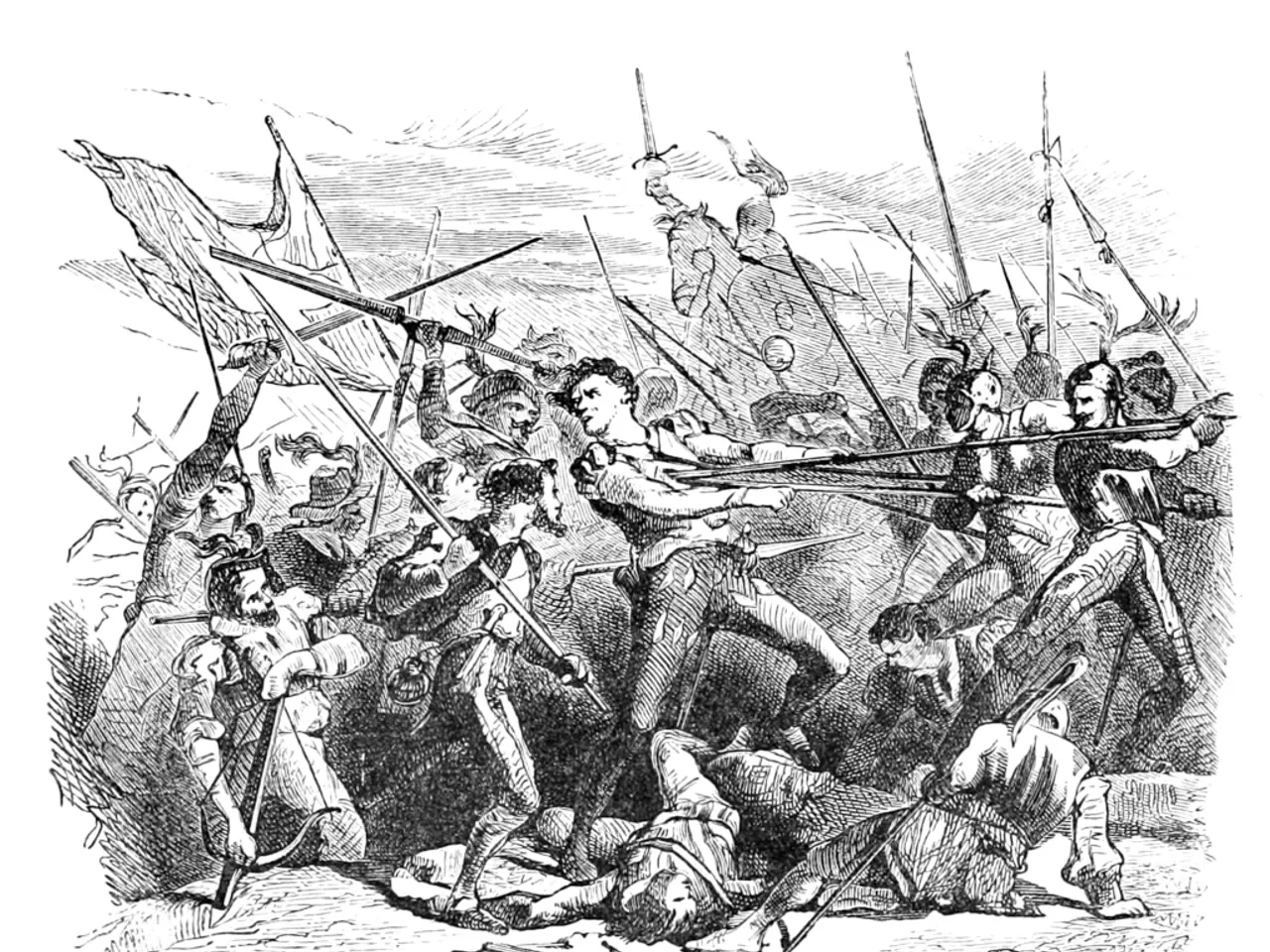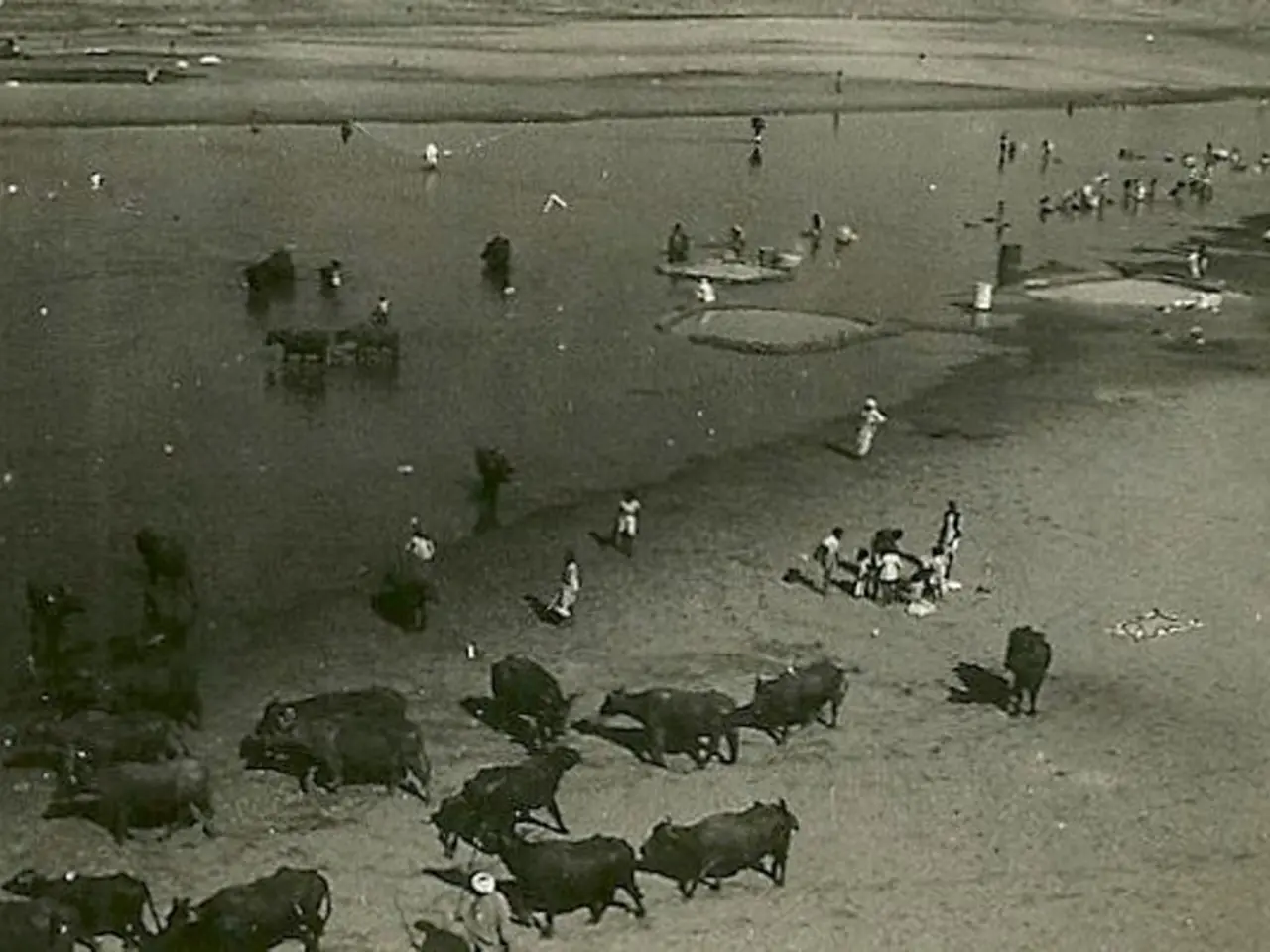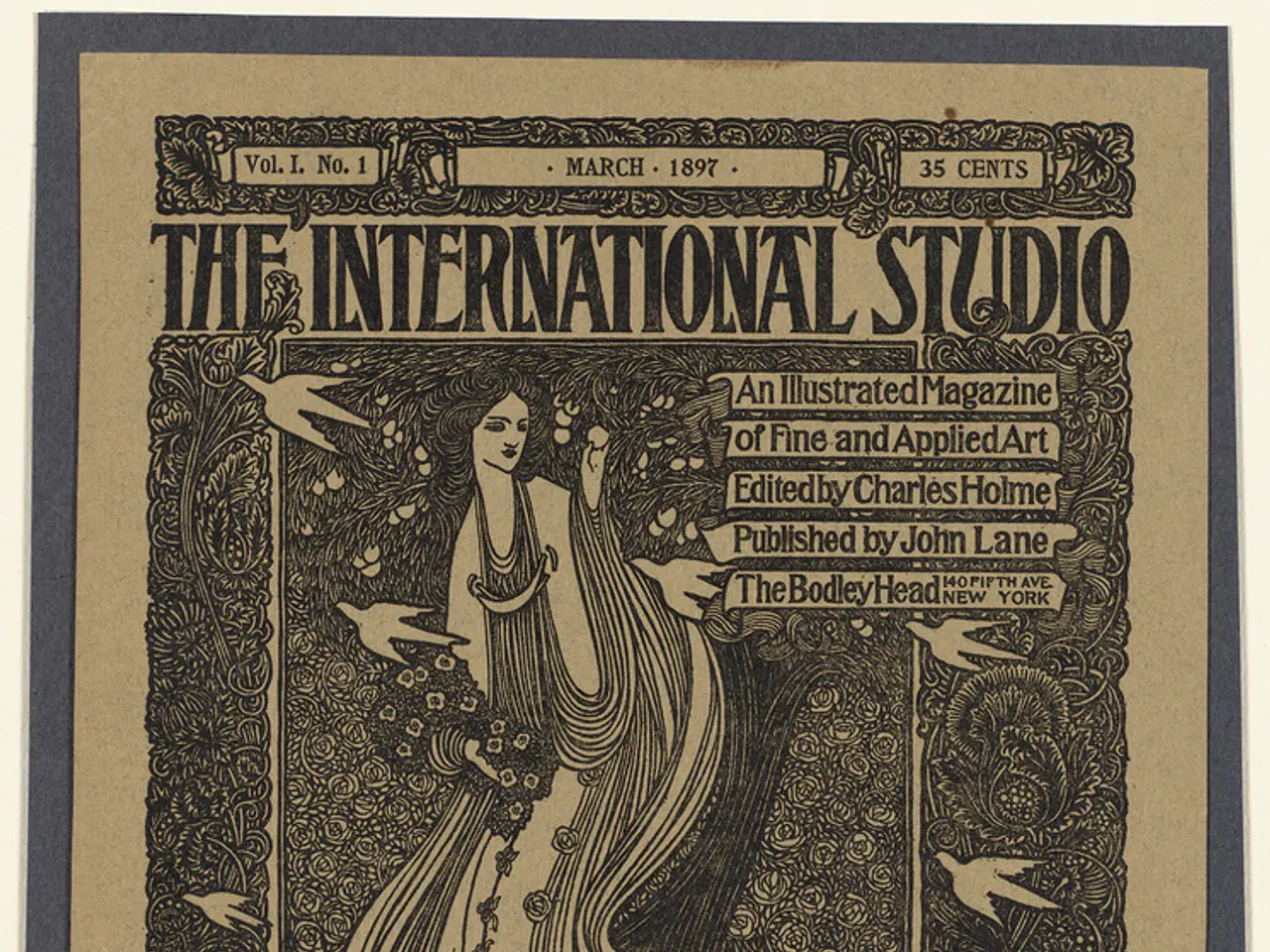championing the cause of uncensored political discourse
In a thought-provoking discourse, the question of whether violence can play a positive role in social struggles has been raised, without dismissing it as an option outright. The debate surrounding this topic is complex and multifaceted, with arguments both for and against its use.
On one hand, proponents argue that violence has historically been an effective tool in achieving social change. Revolutions that led to significant political transformations, such as those in France and Russia, are often cited as examples. Furthermore, in situations where peaceful means are met with extreme resistance or violence, some argue that violence can be a necessary last resort to protect or advance the cause.
Moreover, violence can serve as a powerful symbol of resistance, capturing international attention and potentially leading to broader support for the cause. This symbolic power can be a crucial factor in gaining momentum for a movement.
On the other hand, opponents raise ethical concerns about the use of violence. Violence often results in harm to innocent people and can undermine the moral legitimacy of the cause, leading to decreased public support. Additionally, violence can lead to further violence, creating a cycle of retaliation and escalating the conflict rather than resolving it. The use of violence can also lead to long-term instability and mistrust, making it harder to achieve lasting social change.
Many argue that peaceful methods, such as nonviolent resistance, boycotts, and legal action, can be effective in achieving social change without the negative consequences of violence. These methods have been employed successfully in various movements throughout history, such as the Civil Rights Movement in the United States.
The debate about the use of violence as a means for social change is not a new one. Dr. Martin Luther King Jr., a prominent figure in the Civil Rights Movement, differentiated between negative peace (absence of tension) and positive peace (presence of justice). He advocated for peaceful means but recognised the importance of addressing the root causes of injustice.
In recent times, the Great March of Return in Gaza in 2018 saw 223 Palestinians executed by the IOF (Israeli Occupation Forces) during a near-fully peaceful demonstration against the Israeli blockade. This tragic event underscores the ethical concerns surrounding the use of violence, as innocent lives were lost.
However, in certain circumstances, violence can be seen as rational, necessary, and effective in fighting injustice. The UN defines terrorism as involving intimidation and coercion of a population through violence, and corporate state actions like police brutality, militarization, forced evictions, de jure banning of certain identities, and the military-industrial complex can be considered terroristic.
In conclusion, the debate about the use of violence as a means for social change is a complex one, with valid arguments on both sides. It is essential to consider the context, the potential consequences, and the alternatives before making a decision. The use of violence should not be dismissed outright, but neither should it be endorsed without careful consideration.
- Scholarship and research on the topic of violence in social struggles often cite historical events, such as the French and Russian revolutions, as instances where violence has played a role in achieving significant political transformations.
- Following the Great March of Return in Gaza in 2018, where 223 Palestinians were executed by the IOF during a near-fully peaceful demonstration, the ethical concerns surrounding the use of violence in social struggles have once again been brought to the forefront of general-news discussions.
- In the realm of politics and news, the question of whether violence can play a positive role in social struggles is a contentious one, with opposition frequently raising concerns about the harm it inflicts on innocent people and its potential to undermine moral legitimacy, lead to long-term instability, and create a cycle of retaliation.
- On the other hand, proponents of violence as a means for social change argue that it can serve as a powerful symbol of resistance, gaining international attention and potentially leading to broader support for the cause, as well as being a last resort in situations where peaceful means are met with extreme resistance or violence. They also highlight examples of successful movements, such as the Civil Rights Movement in the United States, that employed peaceful methods like nonviolent resistance, boycotts, and legal action.








